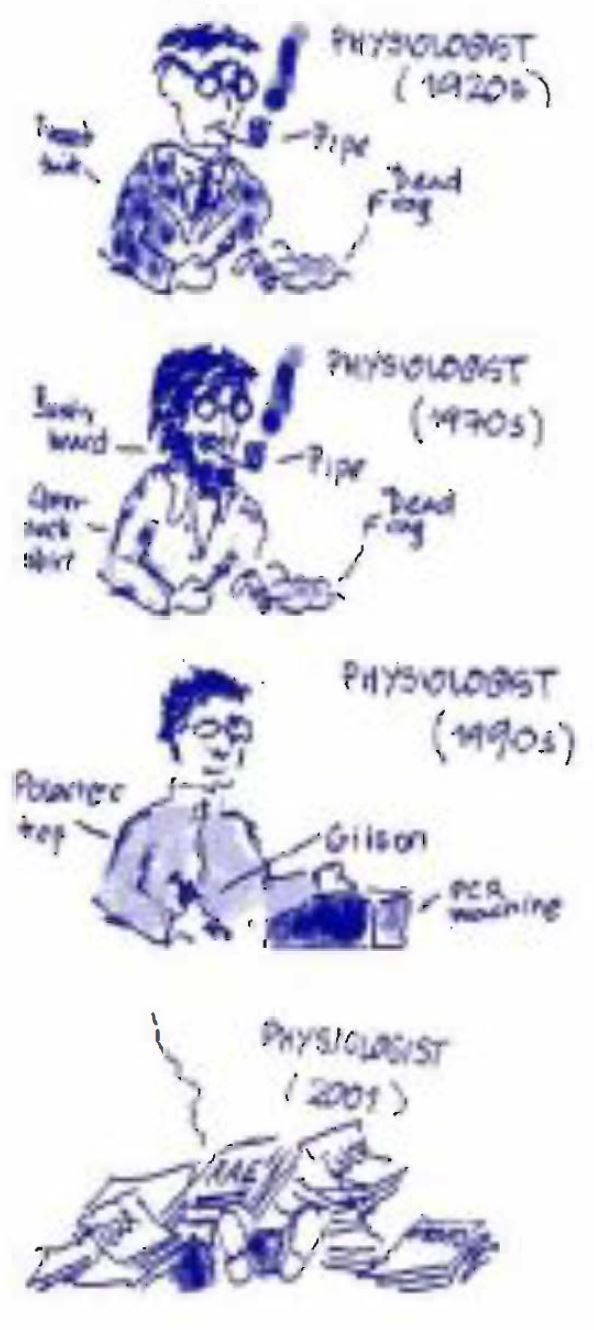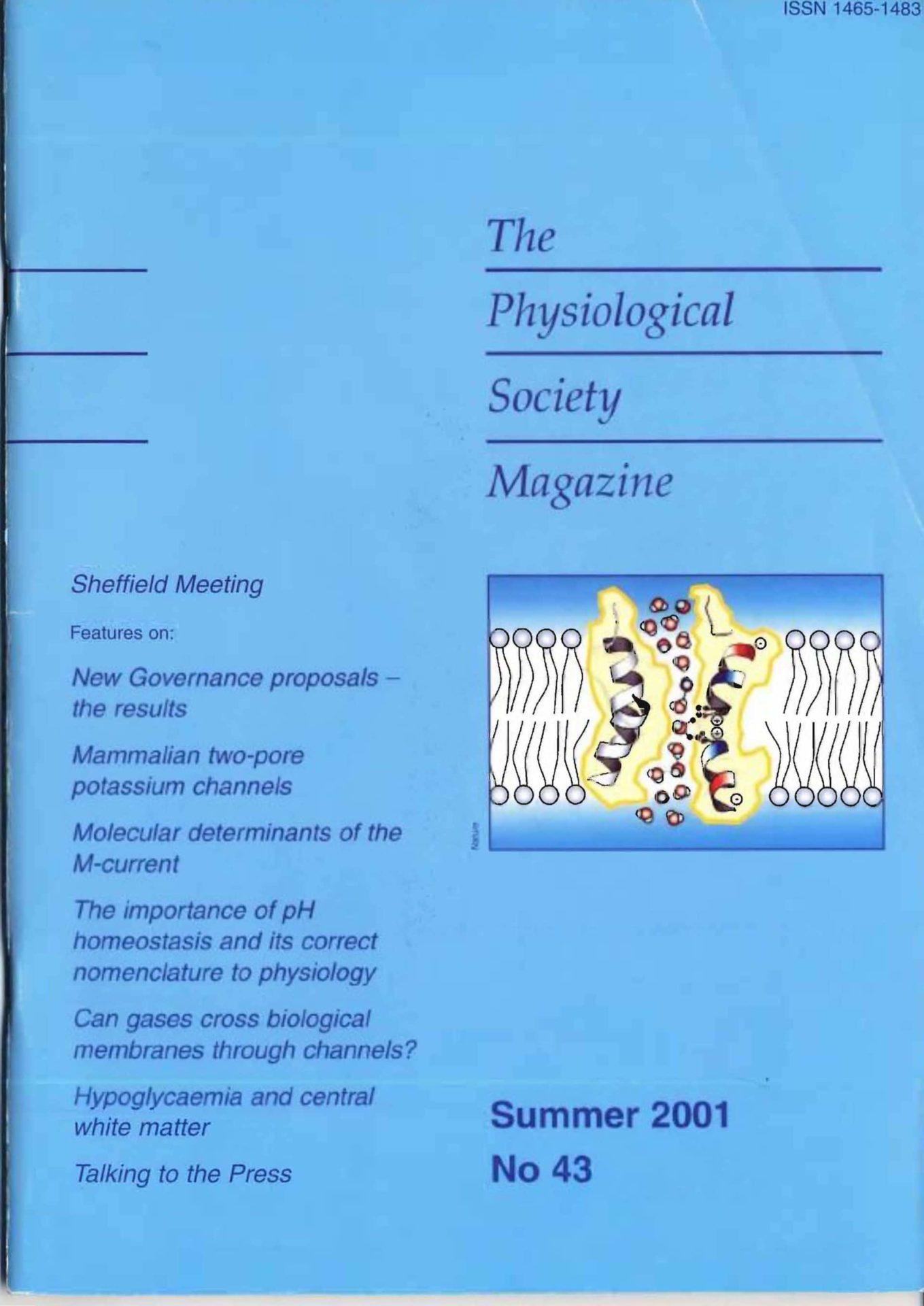
Physiology News Magazine
BLIND/UNBLIND/DOUBLE-BLIND…BLIND PANIC?
Features
BLIND/UNBLIND/DOUBLE-BLIND…BLIND PANIC?
Features
Mark Cain
https://doi.org/10.36866/pn.43.22
Careers in academic scientific research contain many hidden surprises. One of these is the sometimes bizarre bureaucracy, and (sadly) increasing managerialism, of the contemporary British University. Like many things associated with getting older, this creeps up on you stealthily. As a Ph.D. student, postdoc, or newly-appointed lecturer, you live in blissful ignorance of quality audits, subcommittees, working parties, and minutes. Not to mention concepts like “standardization”, “best practise” and “transparency”. But if you serve enough time in a UK University, the day will come when you suddenly realise, to your horror, that you actually recognise these terms. I stress “recognise” – you won’t, of course, actually know what they mean. But you will definitely have heard someone use them somewhere- probably at a subcommittee meeting.
And that’s when you come to a terrible realisation: you have become … an academic.
Once you reach this stage, there is no denying the truth – you have joined a sinister cult, with rituals and a vocabulary all of its own. For instance, the day before writing this column, I sat through nearly three bottom-numbing hours of an Examinations Officers Subcommittee Meeting. The main item of (extremely lengthy) debate was whether our existing procedures for marking students’ exam essays were better described by what our compendious “University Examinations Procedures and Regulations Handbook” called “Universal blind double-marking” or the subtly different “Universal un-blind double-marking”. Quite what the difference was between the two would have taxed a team of highly paid lawyers, let alone a group of bemused scientists. After nearly two hours of circuitous discussion, I had the distinct feeling that the most appropriate description would be “Blind leading the blind double-marking”. Or perhaps the more hopeful “Blind faith double marking”. We did not, of course, include these thoughts in the official subcommittee minutes. Once the exams start, and the piles of papers arrive on my desk, the reality may well be closer to “Double blind-drunk double marking” …
What I am getting at here is that life in UK academic science these days can stray a long way from curiosity-driven research – or even from teaching, which at least involves communicating research-derived knowledge and ideas. Instead the daily routine can often resemble the kind of large-company administrative Kafka-fest celebrated (if that’s the right word) in Scott Adams’ Dilbert cartoons. For “cubicle” read office, for “restructuring” read departmental reorganization, for “quality assurance” read TQA, and for “management consultants” read ·’pre-RAE internal audit team” … Or even just “management consultants”, if your University is really forward-looking. It certainly doesn’t seem that far away from my present reality. So be warned. And remember to close those loops and have your audit trail in place …
“Dr Mark Cain”
… is considering writing a dictionary of managerial terminology directed at the working scientist. When not busy with this or his quality audit trail he can be found “thinking outside the box”, or planning his early retirement.

